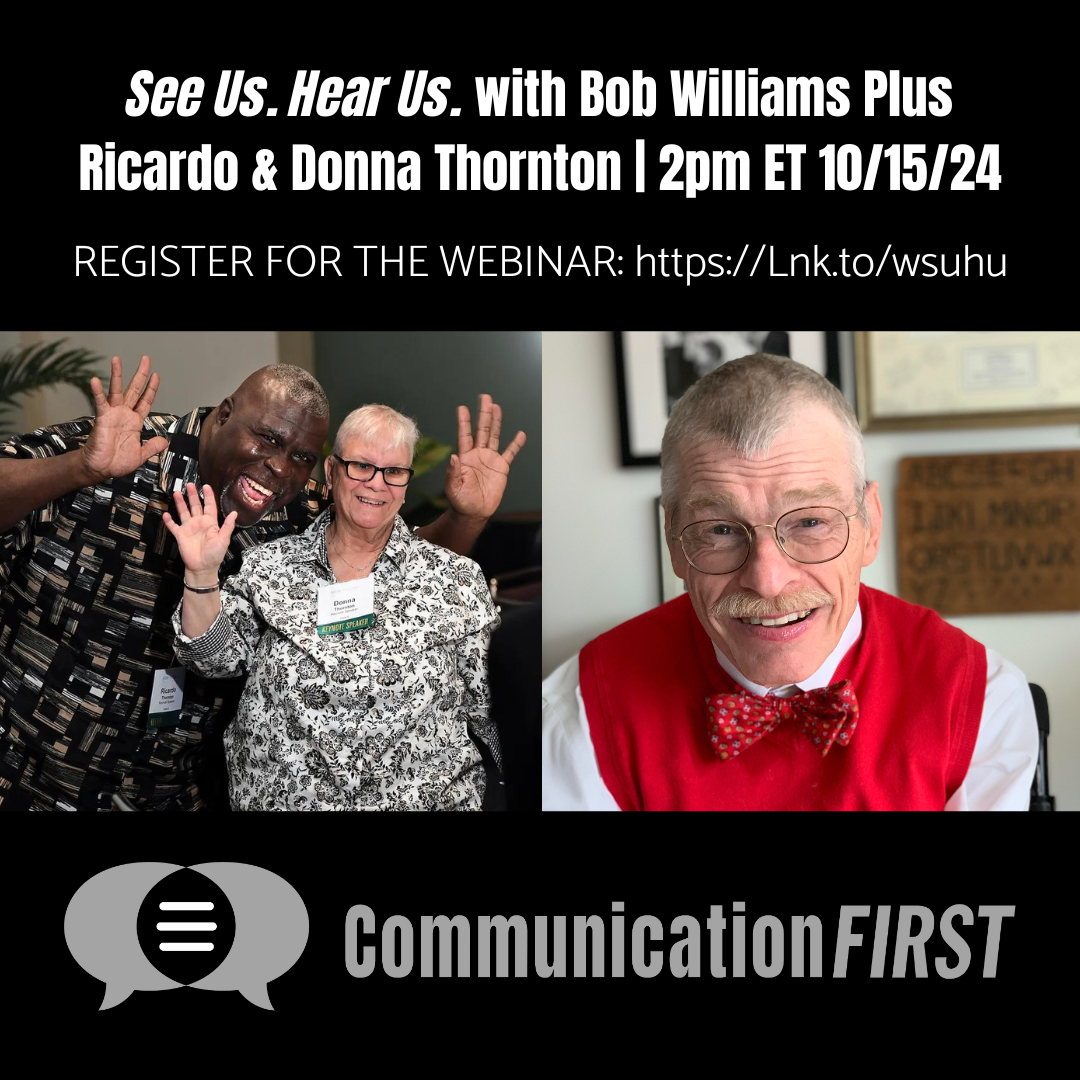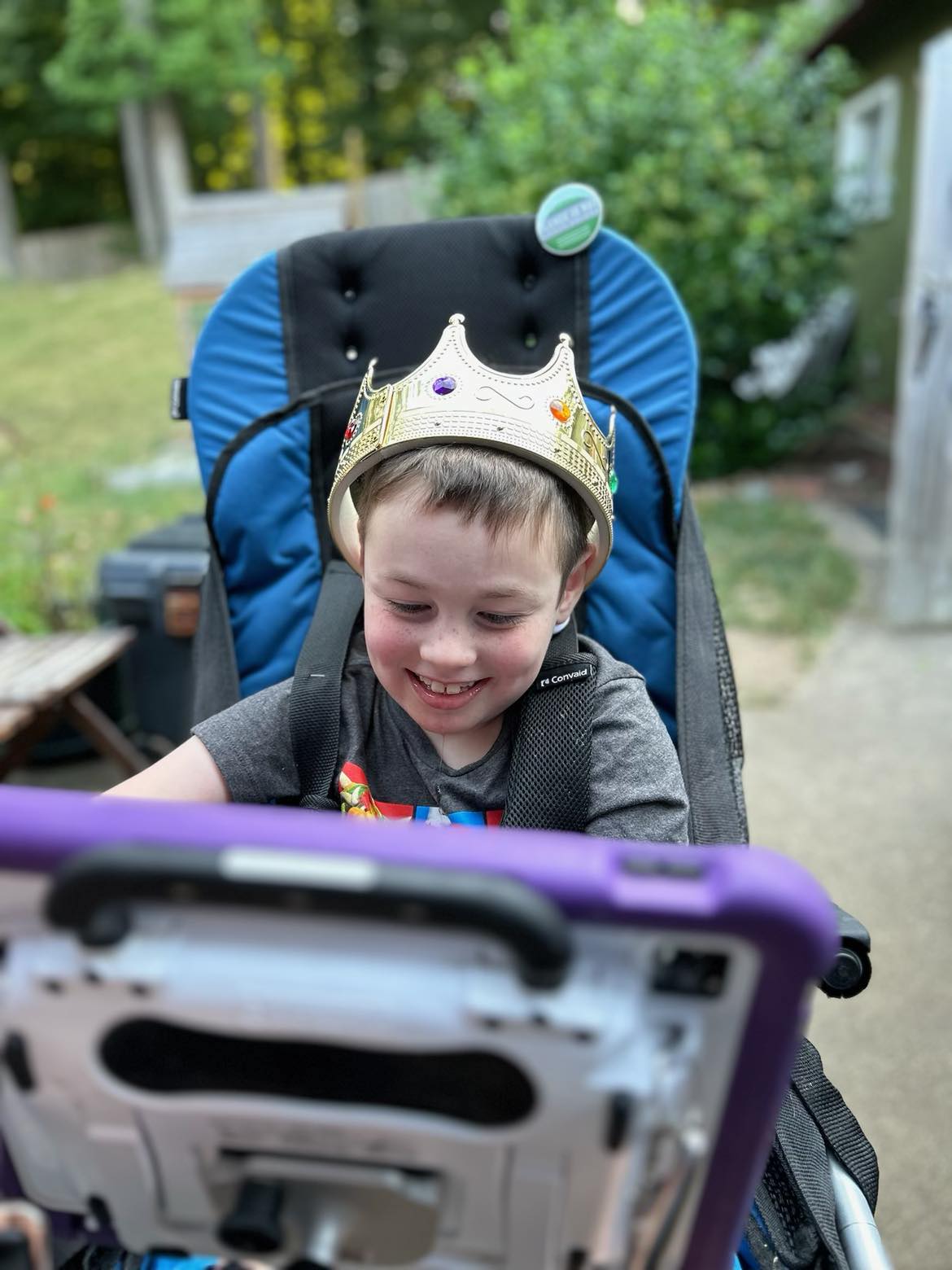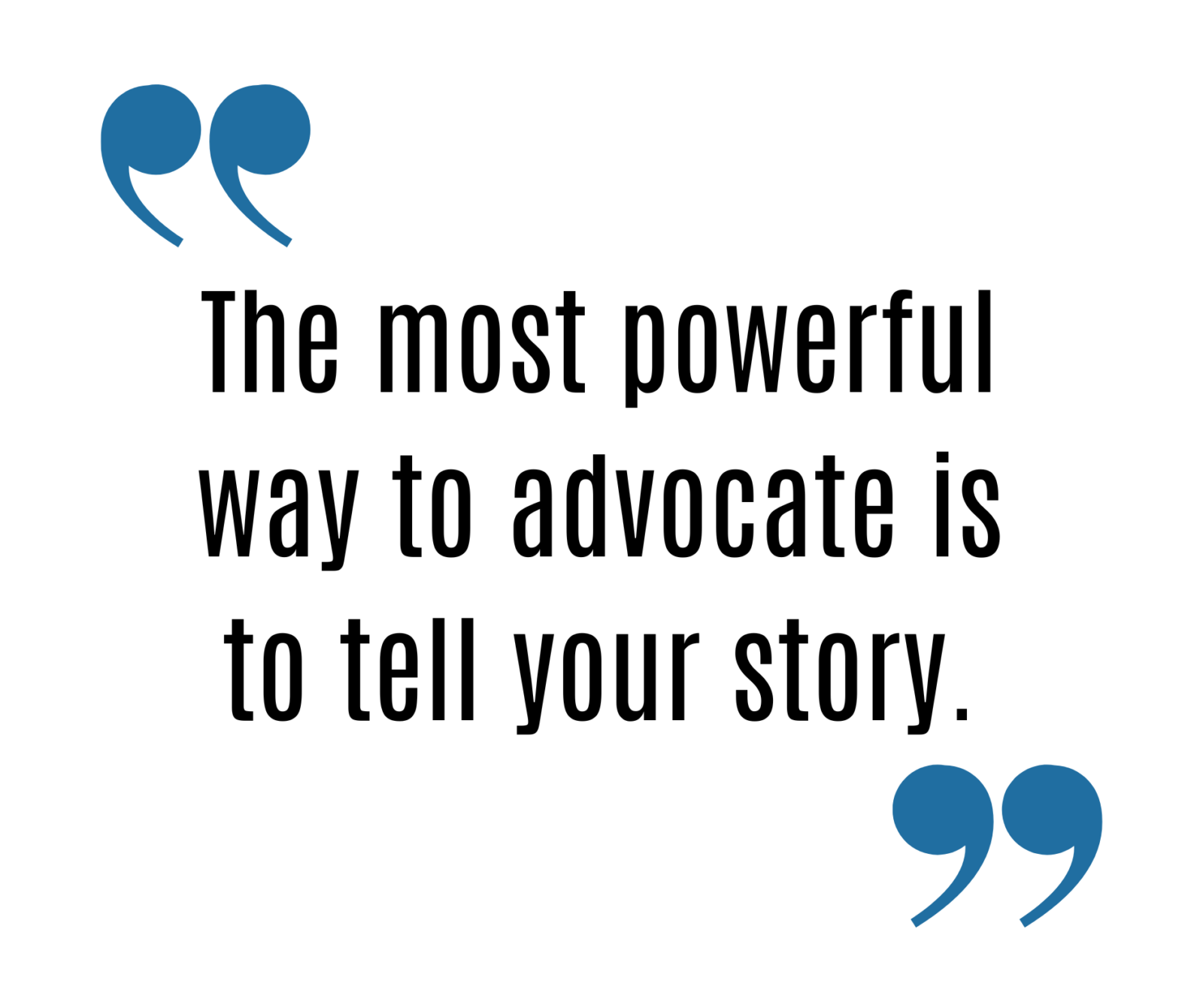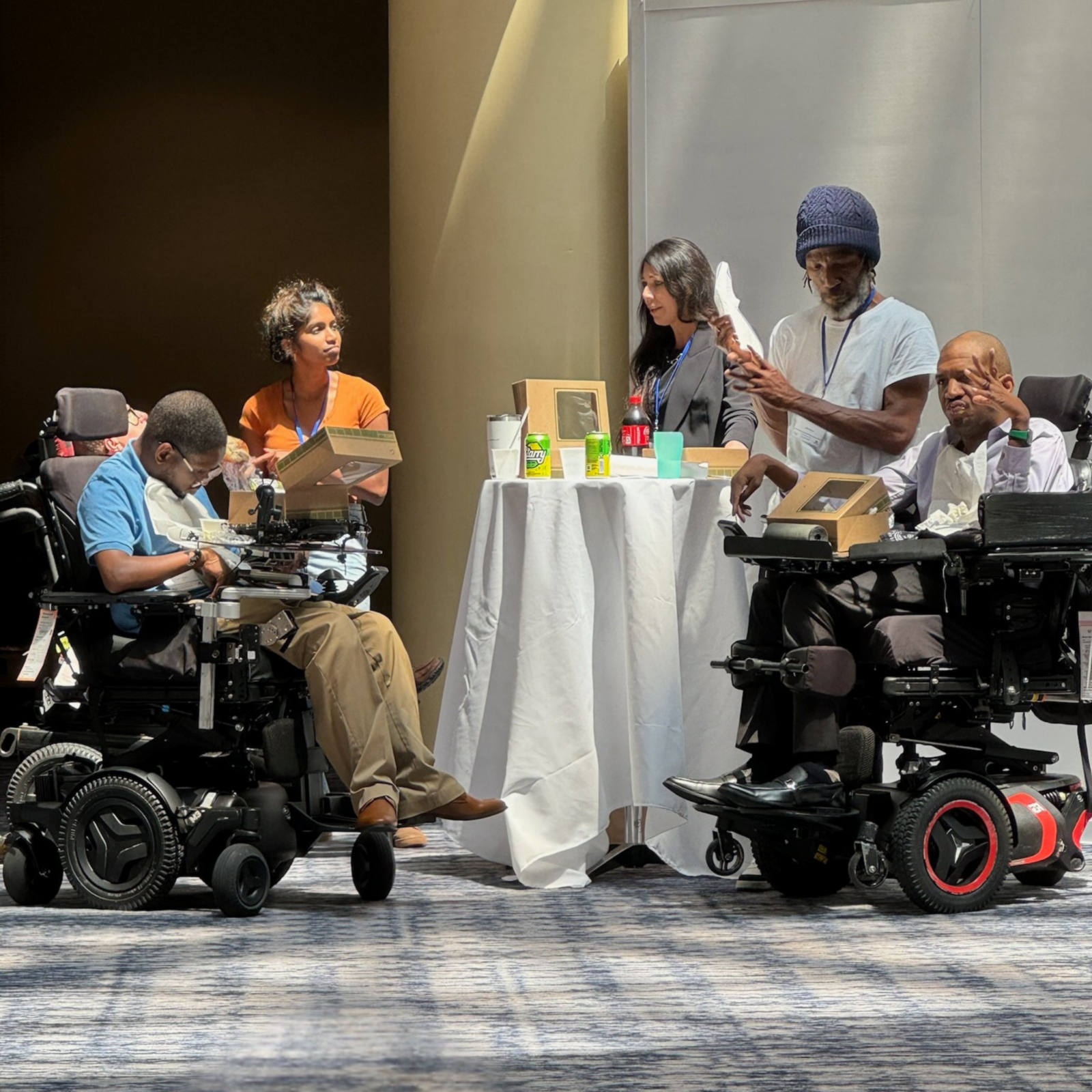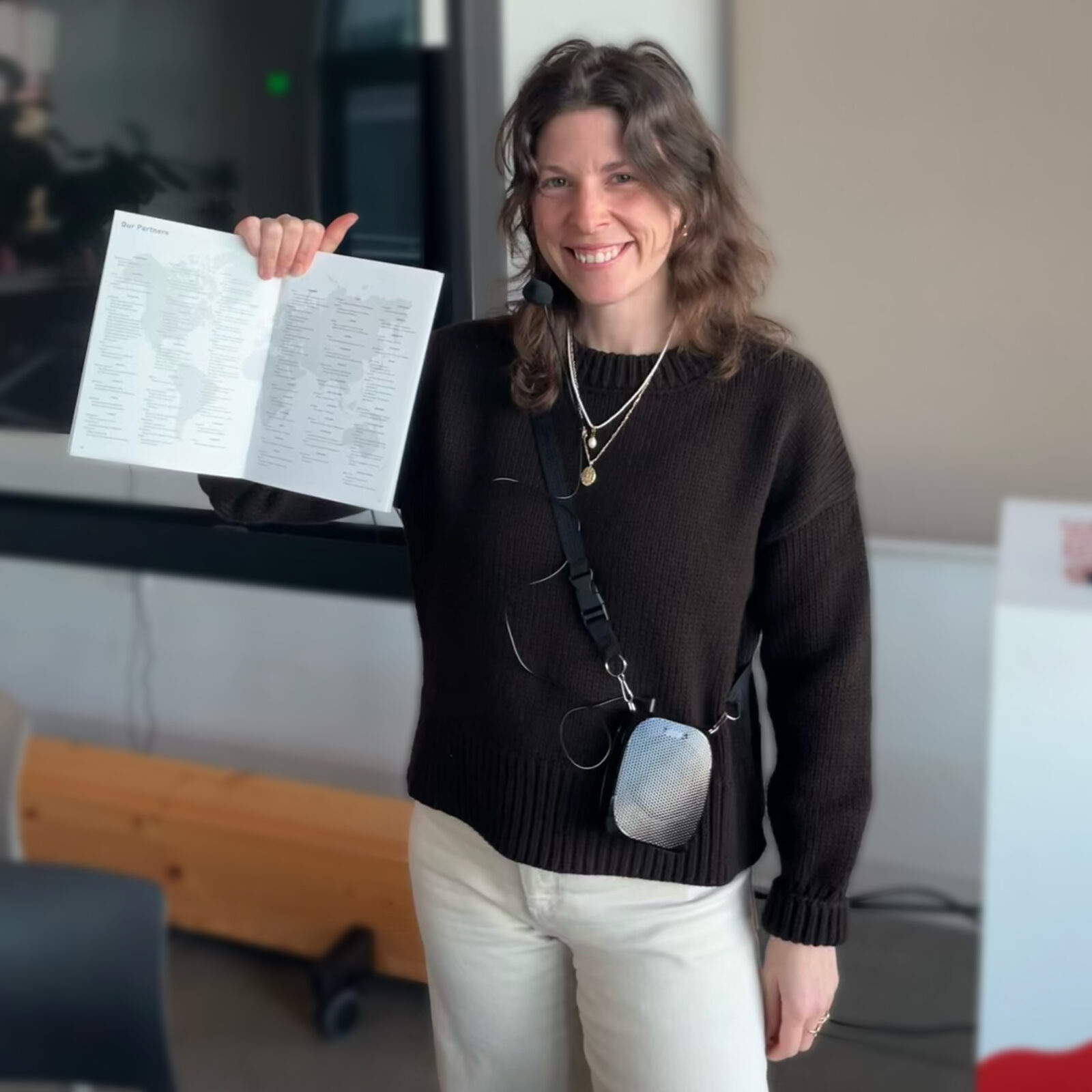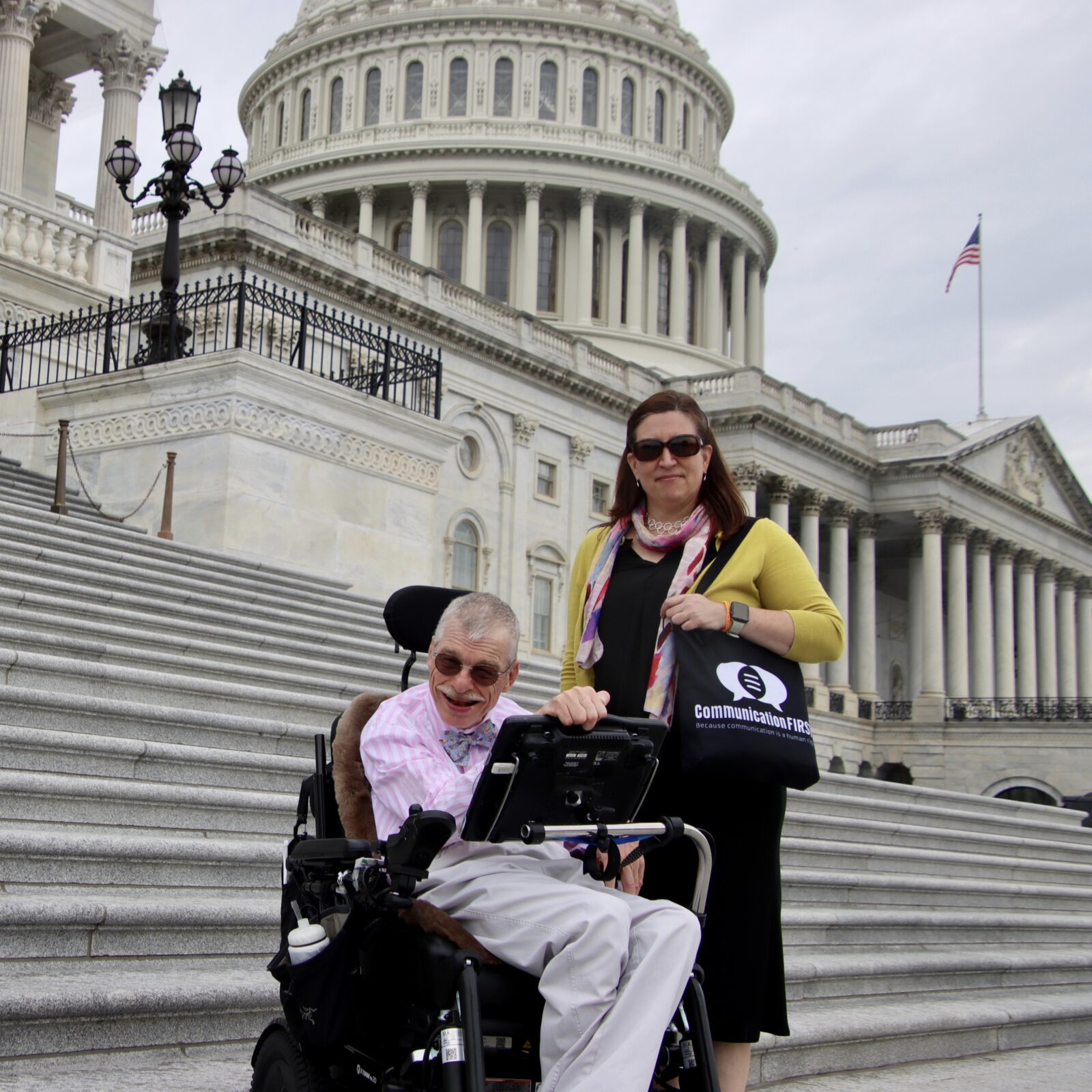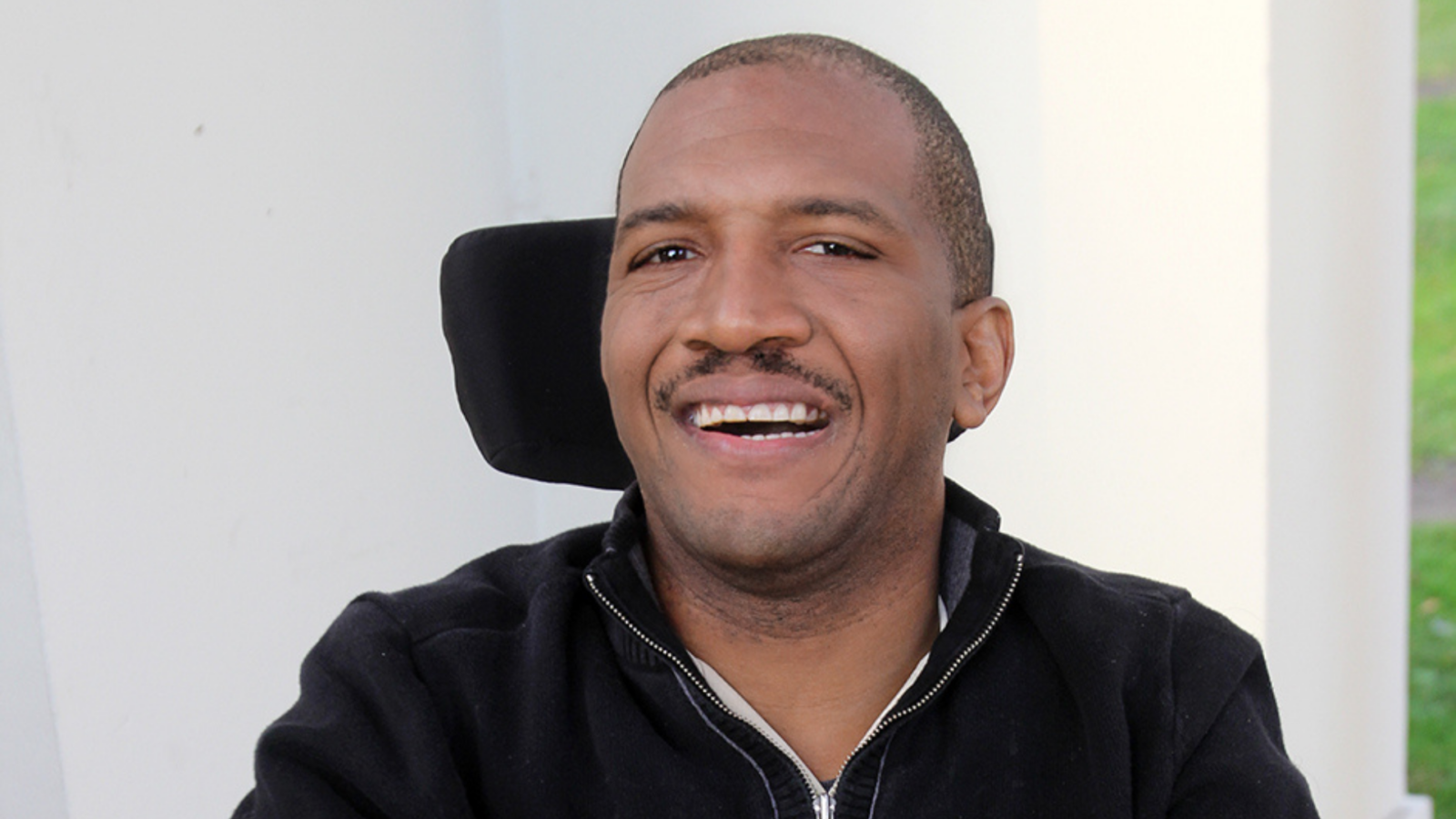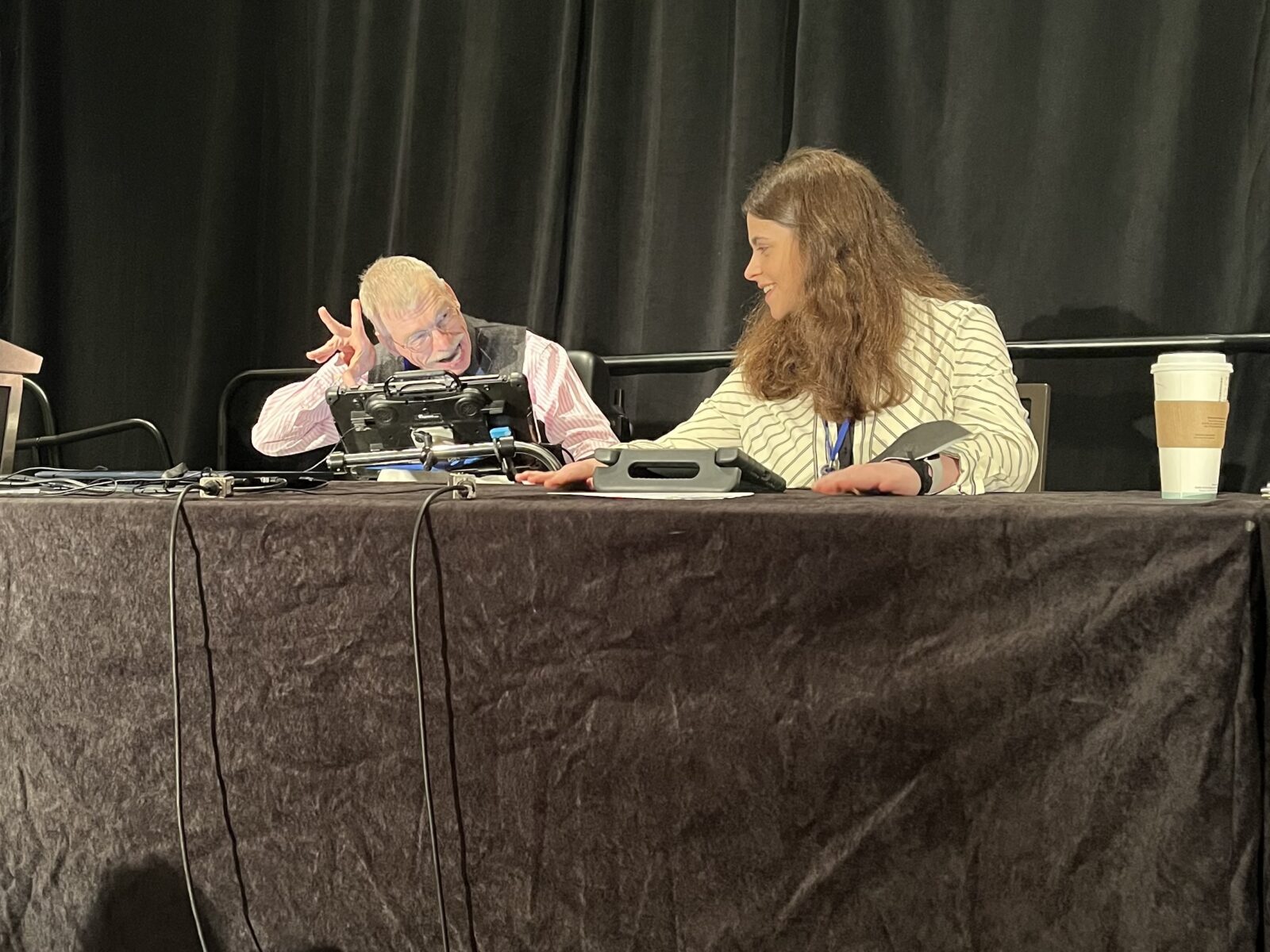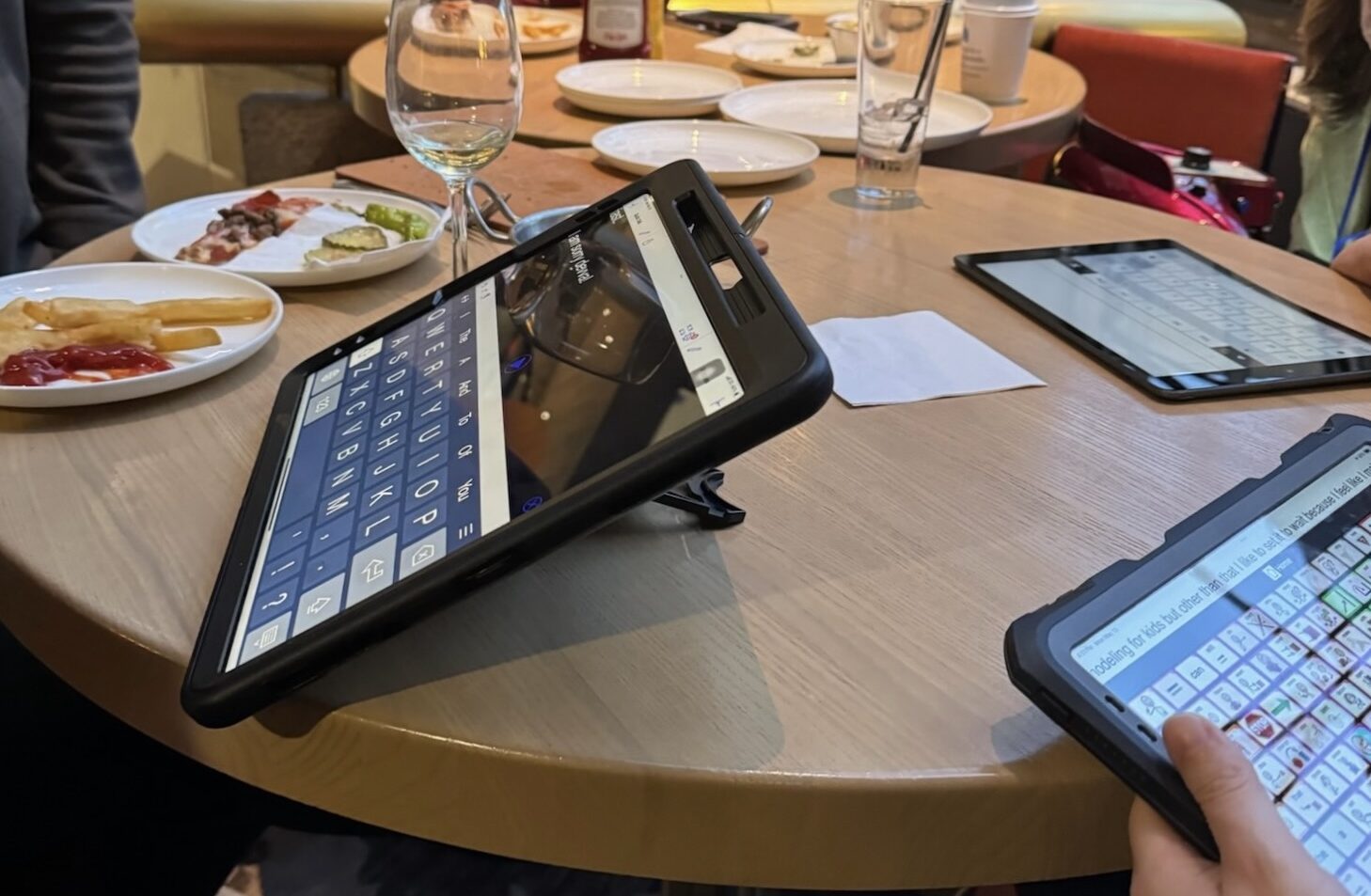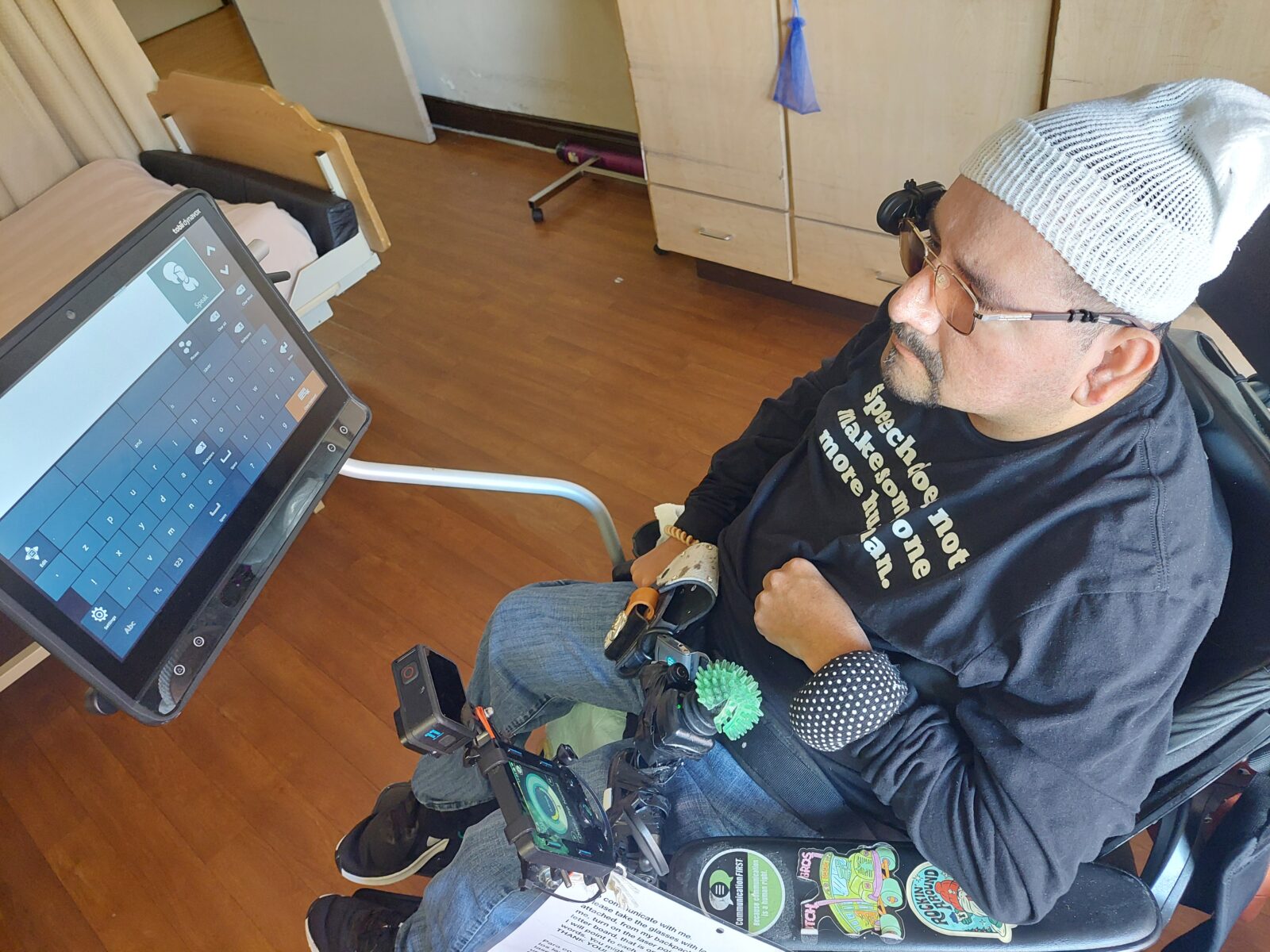This webinar first aired on October 15, 2024, and begins with a screening of CommunicationFIRST’s latest See Us, Hear Us film featuring Bob Williams. It is followed by a discussion among CommunicationFIRST Policy Director Bob Williams, Forest Haven Institution survivors Ricardo Thornton and Donna Thornton, and advocate and ally Rebecca Salon.
Earlier this week, Virginia adopted its first law expressly addressing augmentative and alternative communication (AAC). Read our summary and statement of the law here.
Read CommunicationFIRST’s statement in response to the planned elimination of the Administration for Community Living.
Medicaid is at risk! Your elected representatives need to hear how losing your Medicaid waiver would change your life. This Policy Advocacy for AAC Users toolkit provides some tips.
Share how Medicaid cuts would hurt you or those around you who need Medicaid to stay in the community. We put together some resources from our amazing partners to make this easy!
Sophie Bohnen navigates the world with a whisper. When Sophie developed Laryngeal Dystonia, she adopted a voice amplification device and found her voice in advocacy. Sophie is creating a platform for people who go unheard to share their stories.
Typing with his toes is one way our Board Director Tim Jin communicates. Tim’s key(board) to success has been embracing change in AAC technology! Learn more from his AAC Research Summit talk.
In celebration of Bill of Rights Day, Bob Williams reflects on the power free expression holds for those of us who cannot rely on speech alone to be heard and understood.
Our resource guides people with speech-related disabilities and mental health conditions, allies, and lifeline workers.
Dr. Lateef McLeod’s “How Ableism Impacts People Who Use AAC” presentation was first given at the Future of AAC Research Summit on May 14, 2024, in Arlington, Virginia.
If you are a researcher, an AAC user interested in research opportunities, or a person supporting an AAC user interested in these opportunities, learn about how we can best connect you!
This resource includes quick tips written by AAC users on organizing and hosting online meetings with AAC users.
Bob Williams’s Literacy and AAC presentation was first given at the Future of AAC Research Summit on May 14, 2024, in Arlington, Virginia.
CommunicationFIRST held a brainstorming session to begin to identify some of the “good, bad, and ugly” ways technologies can uniquely impact people with speech-related disabilities.
CommunicationFIRST publicly recruited a diverse group of AAC users who were willing to be interviewed on camera about their priorities for AAC research.

